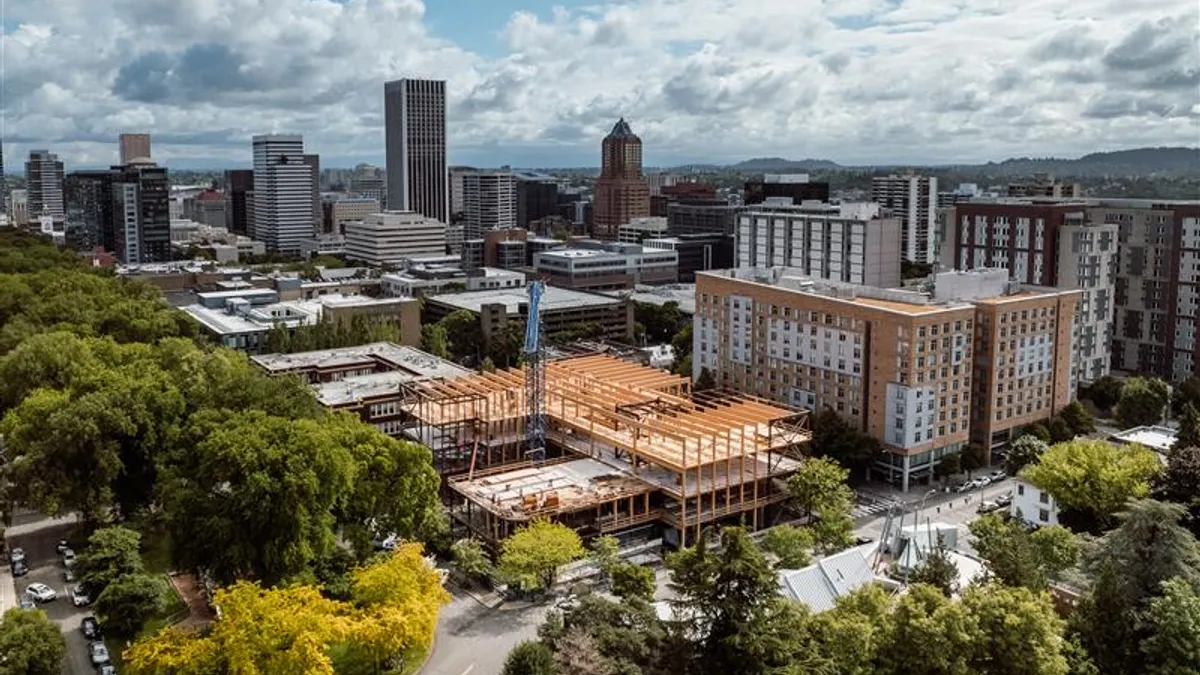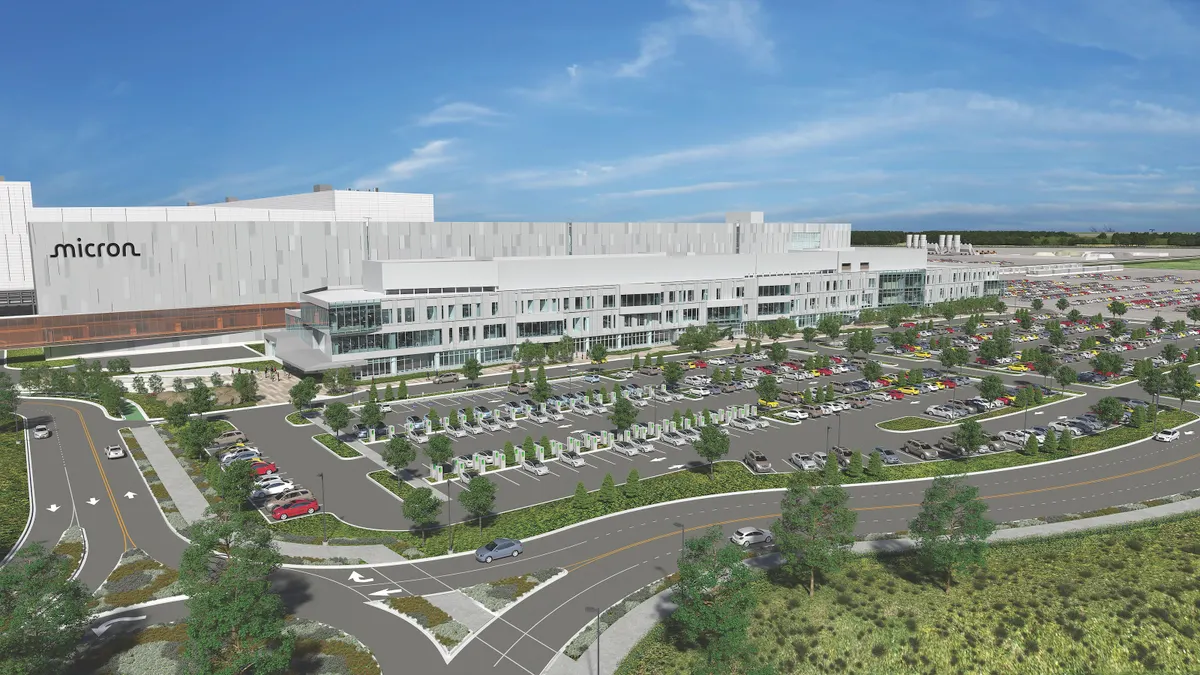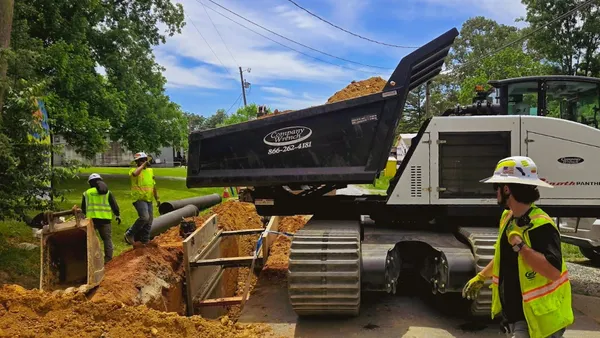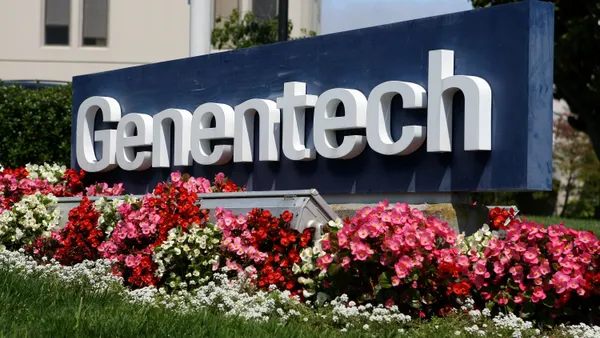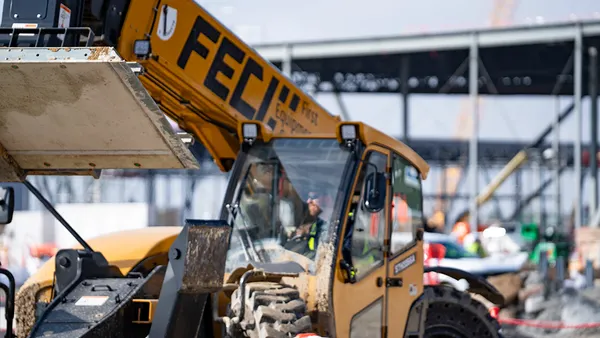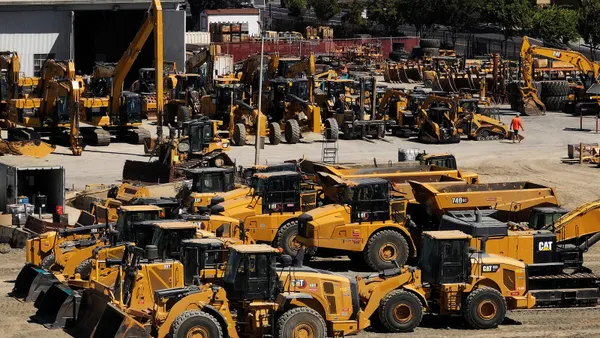Amid the chaos of tariffs and economic uncertainty, Chris Evans is feeling deja vu with regards to the construction supply chain.
Evans, the president of Swinerton-owned mass timber firm Timberlab, has helped the company through the process of building up a domestic supply chain. Evans said the company noted a lack of domestic supply, exacerbated by the COVID-19 pandemic.
That led company leaders, in 2021, to work toward helping the firm become more vertically integrated, with its own fabrication facilities and domestic supply, and a sawmill coming online in 2027.
Timberlab brought its first fabrication facility online in 2020 and a second in 2022, employing computer numerical control fabrication techniques to create cross-laminated timber and glulam, critical mass timber components.
Here, Evans talks with Construction Dive about the effects of tariffs on material pricing and availability, why staying even-keeled is important and how he sees mass timber as an opportunity amid material pricing uncertainty.
Editor’s Note: This interview has been edited for brevity and clarity.
CONSTRUCTION DIVE: How are steel tariffs impacting mass timber? Is there more demand for timber as a steel alternative?
CHRIS EVANS: Most of our wood inputs come from domestic supply. So, there is an effect, but I don't think we're hugely affected at this point.
But, years ago, there was a shortage of open web trusses and steel. When that happened, we saw conversions from steel roof systems to wood roof systems. We helped on one of those conversions of those buildings, and that was due to a supply chain shortage, or really long lead times for open web joists.
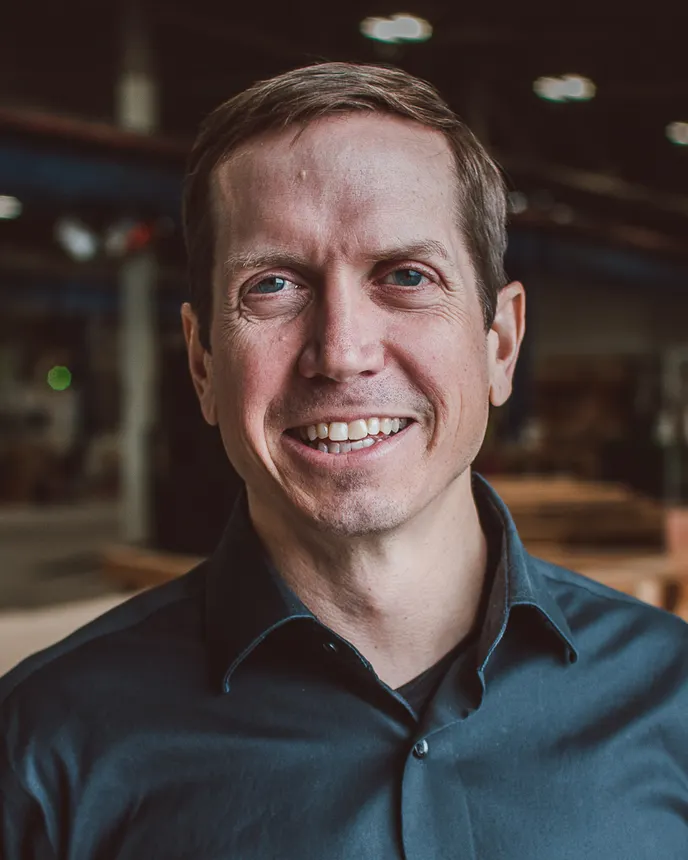
That's a good example of how that effect over on the steel side increases the demand for mass timber products.
I think it's no different, if steel prices go up and tariffs caused that throughout the whole system, then what that will really do is help make mass timber cost neutral or better in more markets across the U.S.
Swinerton and Timberlab have been developing a domestic supply chain. Have the tariffs expedited your plans for the network?
No. These things were already in place before recent events came up.
I think there's a lot of uncertainty in the marketplace. I think with that uncertainty, the best way forward is just to be patient and not overreact to any one social media exchange or anything else, just to be patient with the overall process of what's going on and be even-keeled about it.
I think, over time, sensible solutions will come up that will help everybody.
How are things looking for Timberlab amid the current economic climate?
There's obviously markets where there's lots of building going on, in the Southeast and in Texas as an example, but in other places like Seattle and Portland, it's sluggish at best in those areas.
Even though I'd say the overall economy is, from a building perspective, flat, the actual ramp in mass timber as a market share is definitely continuing to increase. It continues to be something that people, when they are building, are deciding to go in and make higher, better-value buildings with mass timber products.
Do you foresee Timberlab becoming a supplier to other contractors, rather than just supporting your own builds?
Absolutely. We do full supply packages now, where we're not doing any of the install, and we do supply building and glulam products today to plenty of other business-to-business transactions, to other firms doing mass timber and other construction-related activities.
We'll continue to have a big market for that, and that market for us will increase. We're excited to offer supply-only options. Talking off the top of my head, it could be 40% of our business, and 50% when we get to maturity.
Anything you think people should know about the mass timber in this current economic climate?
Mass timber is a viable building system, and it will take market share of steel and concrete. Steel and concrete absolutely have their time and place to be used in buildings. Mass timber does too.
I think that the thing that will help continue to grow the market, is other companies doing what we did, coming in and putting in some CNC capacity to help make building components, to help make mass timber buildings. The supply chain will continue to get rounded out over time.
I think that will naturally happen, but we need to continue to do that.



